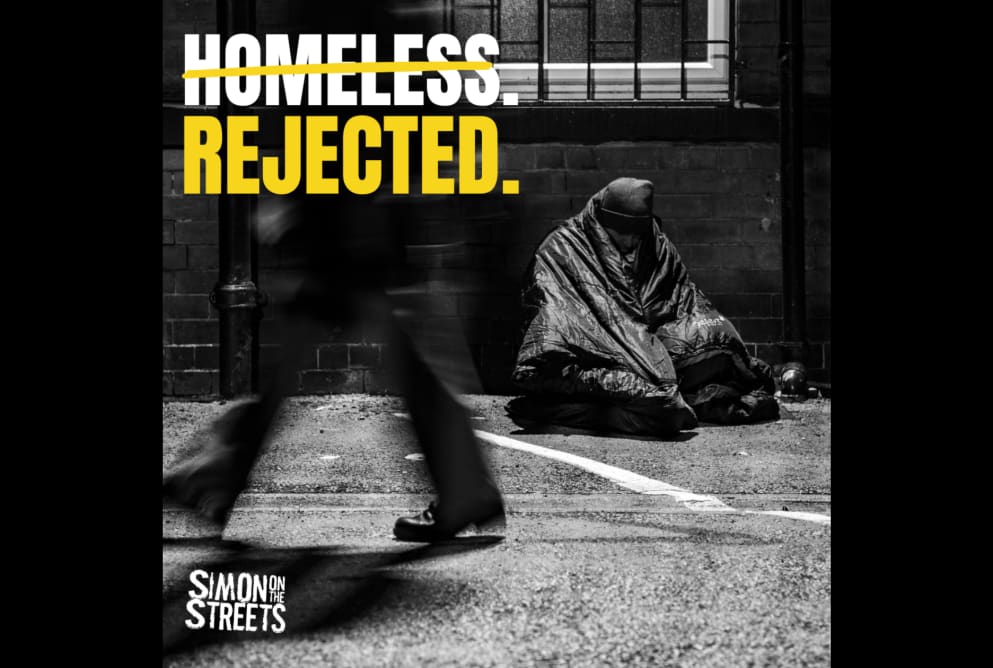A big part of looking beyond homelessness is understanding the journey that has led someone to where they are.
Assumptions are everywhere, and we can all be guilty of making them. But as the saying goes, until you’ve walked a mile in someone else's shoes, you can never really know what they’ve been through or their current experience.
Rejection can play a huge part in someone becoming homeless and struggling to break the cycle. It can be brutal and show itself in a range of different ways.
Rejection from family and friends
Many people we work with here at Simon on the Streets have faced rejection from family members and their friendship circles. If family and friends surround you, you can only imagine how painful it would be to find yourself rejected by them - whatever the reason for it may be.
Addiction and behaviour
Unfortunately, some people are rejected as a result of certain behaviours. Prolonged addiction, for example, and the actions that can come with it - stealing, abusive behaviour, etc. Families and friends can find this extremely difficult to deal with. In the end, it becomes too overwhelming. People find themselves rejected, with nowhere to go and no one to turn to.
In reality, of course, people facing addiction (and their families) need support services as opposed to rejection.
LQBTQ+
Almost 25% of the youth homeless population in the UK identify as part of the LGBTQ+ community. Worryingly, nearly three-quarters have said their identity or sexual orientation is the primary reason family members have rejected them, and they’ve been asked or even forced to leave their homes.
Sofa surfing
In the case of people sofa surfing or crashing with friends (they may have fled an abusive relationship, for example), there often comes a point where their friend or family member can no longer house them. With nowhere to go and no resources to sustain themselves, this drives many people to the streets.
Rejection from services
Becoming homeless because you’ve been rejected by those close to you is one thing. But trying to break that cycle and then facing rejection from the services and organisations that are there to help can add another painful layer of trauma and hopelessness.
Frustratingly, many services, such as banks, GPs, and social workers, require identity verification, such as proof of address, national insurance number, or contact details. Without these, many people we support have been turned away, leaving them feeling completely trapped.
Sometimes, we even see a person who is able to access the service but is refused support because of various criteria they can’t meet. Universal credit is a good example of what we mean here.
Consequences of continual rejection
If you face rejection after rejection, it’s going to start affecting your mental health.
From low self-esteem and heightened depression to anxiety and chronic loneliness, it’s easy to see how someone can start to lose hope when they’re constantly met with ‘no’, especially when they’re experiencing homelessness.
This is why our outreach workers are so vital. They provide someone with the practical support they need, so that they have the best chance of overcoming the obstacles in their way. Sometimes, this can change the course of their whole life.
This Christmas, we’re asking for donations to expand our outreach team and help more people break the cycle of homelessness through relationships built on trust and connection.
These relationships take time, patience, and funding. Without government funding, your donations allow us to continue this critical work.
To donate £10, text SIMON to 70470. You can also donate via our JustGiving page now.
Thank you.
